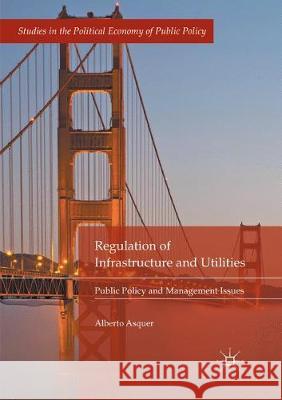Regulation of Infrastructure and Utilities: Public Policy and Management Issues » książka
topmenu
Regulation of Infrastructure and Utilities: Public Policy and Management Issues
ISBN-13: 9783319884783 / Angielski / Miękka / 2018 / 222 str.
Kategorie BISAC:
Wydawca:
Palgrave MacMillan
Seria wydawnicza:
Język:
Angielski
ISBN-13:
9783319884783
Rok wydania:
2018
Wydanie:
Softcover Repri
Ilość stron:
222
Oprawa:
Miękka
Wolumenów:
01











